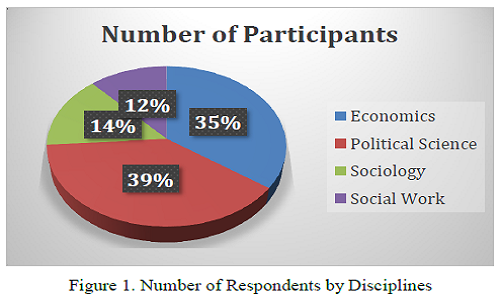
Practices and Challenges of Professional Learning Communities: A Mixed Method Study on Social Sciences Faculty of Government Colleges in Bangladesh
Abstract
Keywords
Full Text:
PDFReferences
Alshehry, A. (2018). Case Study of Science Teachers' Professional Development in Saudi Arabia: Challenges and Improvements. International Education Studies, 11(3), 70-76.
Al-Ghatrifi, Y. (2016). The professional development of teachers in Higher Education in Oman: a case study of English teachers in the Colleges of Applied Sciences (Doctoral dissertation, University of Reading).
Bayar, A. (2014). The Components of Effective Professional Development Activities in Terms of Teachers' Perspective.Online Submission, 6(2), 319-327.
Creswell, J. W. (2012). Educational research: planning. Conducting, and Evaluating. New York: Pearson.
DuFour, R., & DuFour, R. (2013). Learning by doing: A handbook for Professional Learning Communities at Work TM. Solution Tree Press.
Draper, D. P. (2014). Guiding the Work of Professional Learning Communities: Perspectives for School Leaders. Portland State University.
Hudson, Quonias(2015).The Effectiveness of Professional Learning Communities as Perceived by Elementary School Teachers, Walden University, A doctoral dissertation.
Hoque, Kazi Enamul, Alam, Gazi Mahabubul , Abdullah, Abdul Ghani Kanesean (2011), Impact of teachers’ professional development on school improvement—an analysis at Bangladesh standpoint, Asia Pacific Educ. Rev. (2011) 12:337–348
Guskey, T. R. (2014). Planning professional learning, Educational Leadership, 71(8), 10.
Jones, L., Stall, G., & Yarbrough, D. (2013). The importance of professional learning communities for school improvement. Creative Education, 4(05), 357.
Knowlton, S., Fogleman, J., Reichsman, F., & de Oliveira, G. (2015). Higher education faculty collaboration with K-12 teachers as a professional development experience for faculty.Journal of College Science Teaching, 44(4), 46-53.
Mannan, M. A., (2018). (11thSeptember, 2018) Education in Bangladesh (In Bengali), The Daily Ittefaq.
McLaughlin, M. W., & Talbert, J. E. (2007). Building professional learning communities in high schools: Challenges and promising practices. Professional learning communities: Divergence, depth, and dilemmas, 151-165.
Monem, M., & Muhammad, H. (2010). Higher Education in Bangladesh: Status, Issues and Prospects. Pakistan Journal of Social Sciences (PJSS), 30(2), P-293-305
Mulford, B. (2007). Building social capital in professional learning communities: Importance, challenges and a way forward. Professional learning communities: Divergence, depth and dilemmas, 166-180.
Stoll, L., Bolam, R., McMahon, A., Wallace, M., & Thomas, S. (2006). Professional learning communities: A review of the literature. Journal of educational change, 7(4), 221-258.
Schuck, S., Aubusson, P., Kearney, M., & Burden, K. (2013). Mobilising teacher education: A study of a professional learning community. Teacher Development, 17(1), 1-18.
Watson, C. (2014). Effective professional learning communities? The possibilities for teachers as agents of change in schools. British Educational Research Journal, 40(1), 18-29.
Reimer, T. L. (2010). A study on the principal’s role in the development of professional learning communities in elementary schools that “beat the odds” in reading, A PhD Dissertation of the University of Minnesota.
DOI: http://dx.doi.org/10.31258/jes.6.2.p.294-311
Refbacks
- There are currently no refbacks.
Copyright (c) 2022 Muhammad Jakir Al-Faruki

This work is licensed under a Creative Commons Attribution 4.0 International License.
Publisher: FKIP Universitas Riau












